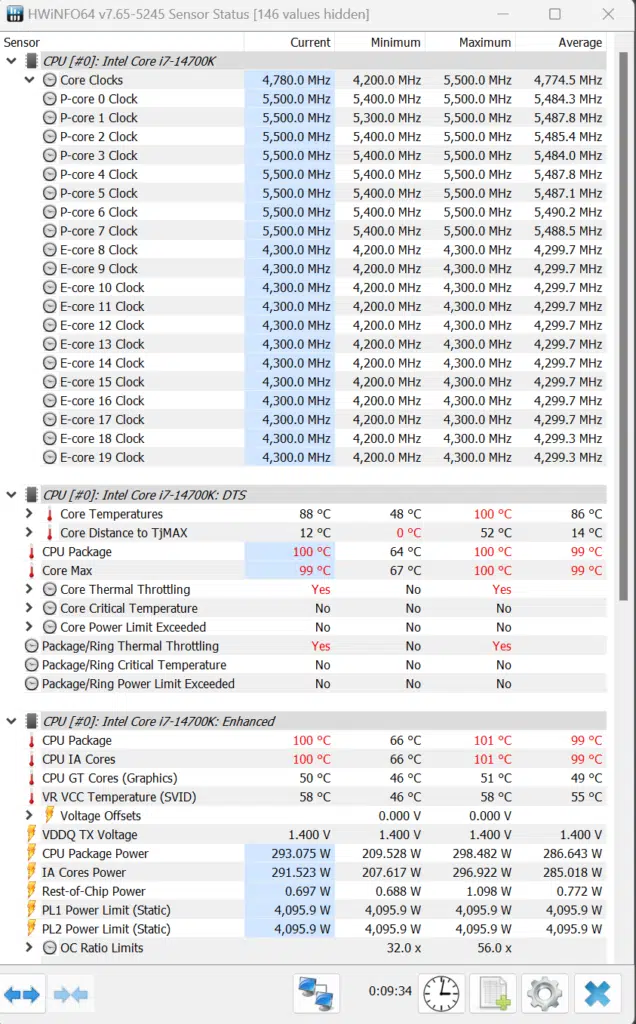Power and Temperature and Frequency
On this page, we are going to investigate the Intel Core i9-14900K power draw, temperature, and frequency. This is a stress test, which means we are pushing each CPU to its maximum potential in all-core load in the Cinebench R23 multi-core test for 10 minutes.
Power
We use HWiNFO64 sensor data to record the results. We report on the sensor data for “Package Power” in Wattage.

The Intel Core i7-14700K is fast when doing multi-core/thread workloads, and this graph shows the power demand it requires to perform as it does, and we can see it demands a lot of power. The Intel Core i7-14700K chewed through almost 300W of power, which means it consumes a whopping 70% higher power demand compared to the 12th Gen Intel Core i7-12700K, wow. Even compared to the Ryzen 9 7900X, the 14700K demands 54% more power to run at its full potential.
Temperature
We use HWiNFO64 sensor data to record the results. We report on the sensor data for “Tcidle” in Celsius.

The Intel Core i7-14700K runs up to 100-101c before it hits its thermal limits, and we are hitting those limits easily when running all the cores on this CPU. Now, it can run fine at these temps, but you are hitting that maximum thermal limit even on a 360mm AIO when the power is not limited. The Ryzen 7 7700X gets up there as well, but the 7900X runs a little cooler, but the ‘coolest’ is the 7800X3D or the older 12700K. The difference in temp between the 14700K and 12700K is pretty significant.
Frequency
So how does this all affect the frequency on the Intel Core i7-14700K? When pushing all the cores (on the left) we see the frequency of the P-cores fluctuate between 5300MHz-5500MHz. On the E-cores it stayed between 4200MHz-4300MHz. This means that it can hit the intended frequency at 5.5GHz P-core and 4.3GHz E-core, but it won’t always sustain that, it will range a bit between 100-200MHz when all cores are in use. It never hits that Intel Turbo Boost Max Technology 3.0 Frequency of 5.6GHz when all cores are in use.
In single-core workloads (on the right) we see it sustained at 5.5GHz, not necessarily 5.6GHz sustained, though it did peak at 5.6GHz briefly.


